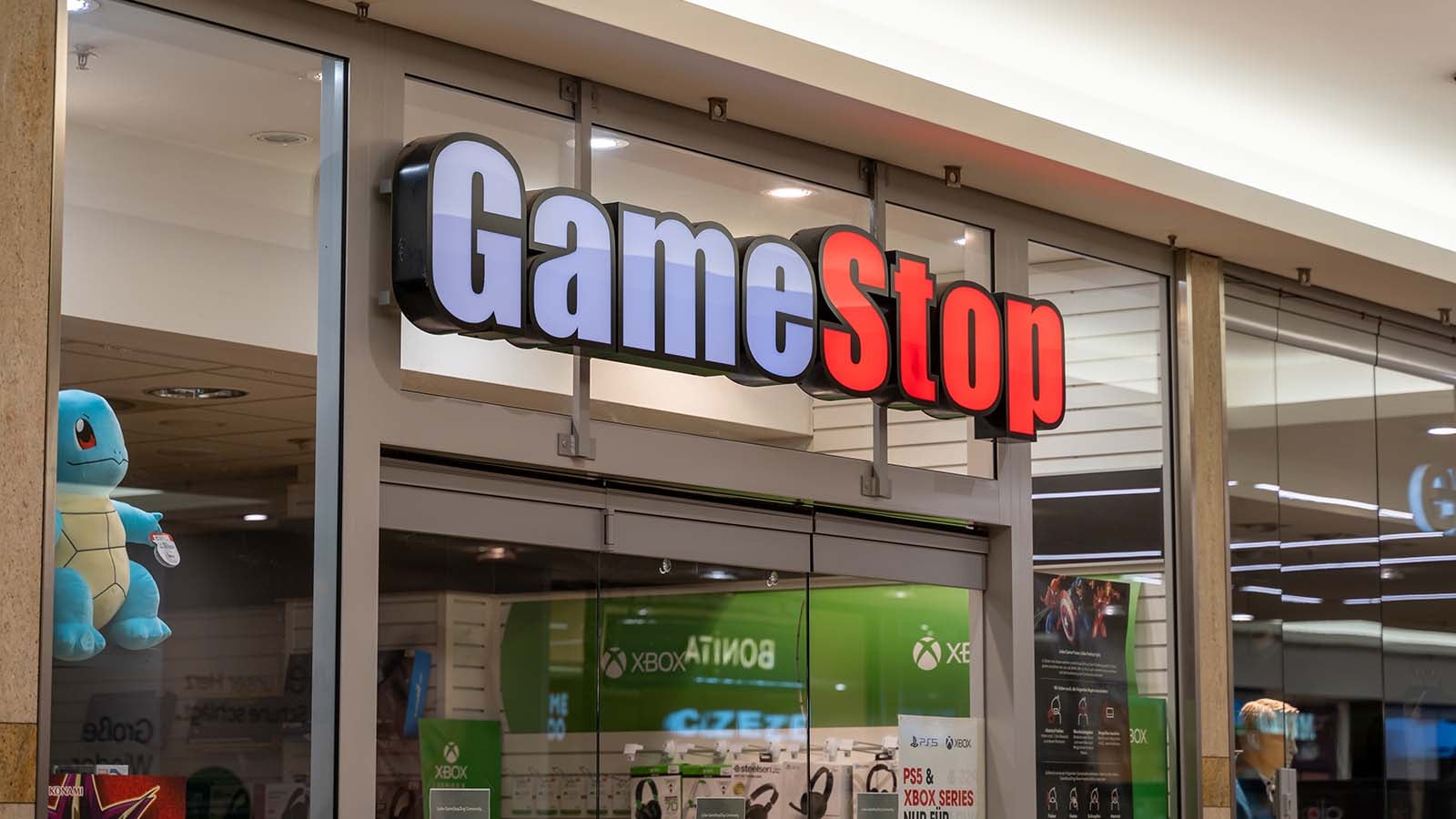At this point, I don’t see any good reasons to buy or even hold GameStop (NYSE:GME) stock. Fundamentally, the company’s business is contracting and its business model is broken while its CEO, Ryan Cohen, does not seem to have a viable plan to turn the company around.
Also importantly, the valuation of GameStop stock is not particularly attractive and Cohen has a mixed record at best. On a more technical level, the meme stock rallies that had propelled the shares higher in recent weeks could not be sustained and appear to be over. Finally, other large investors, including the company and Cohen himself, justifiably seem to be unenthusiastic about GameStop’s shares.
In light of these points, I advise investors to immediately unload all of the GameStop stock that they own.
Poor Fundamentals and a Broken Business Model
As I noted in an April 30 column, investment bank Wedbush warned that GameStop’s revenue would fall $150 million to $200 million annually. Analyzing the retailer’s fourth-quarter results, the bank noted that the firm’s revenue had dropped sharply during the holiday shopping season due to lower demand for hardware, fewer major releases of video-game consoles, and a decline in sales of its more profitable video games. Specifically, the firm’s top line sank 20% during the quarter versus the same period a year earlier.
Importantly, Wedbush noted the company did not have a “clear strategy to replace lost games sales” and added, “it may have trouble trimming costs fast enough to stem the growth of its losses.”
So far Wedbush’s gloomy assessment has proven to be rather prophetic. That’s because the company’s Q1 sales sank a huge 29% year-over-year to $882 million while the cash burned by its operating activities climbed to $109.8 million from $102.7 million in Q1 of 2023. Moreover, its cash, equivalents and restricted cash at the end of March came in at $1.017 billion, down from $1.079 billion during the time in 2023.
In the past, I’ve noted GameStop’s business is being steadily eroded by the fact most video games can be easily downloaded from their manufacturers, eliminating the need for players to buy them from GameStop. According to The Asian Investor, a Seeking Alpha columnist, the company’s financial metrics are still sinking as a result of this ongoing trend.
And Cohen, its CEO, still does not appear to have a plan to reverse this trend as he continued to emphasize his cost-cutting strategy during its annual meeting last month. As the old saying goes, companies “can’t cut their way to profitability.”
Cohen’s Spotty Record and an Unattractive Valuation
Some of those who are bullish on GameStop stock may be pinning their hopes on Cohen. That’s especially true because, in addition to being CEO, Cohen has obtained a major stake in the firm. What’s more, the company’s board gave him the authority to invest the company’s money in other stocks.
It is true Cohen did an admirable job of turning pet e-commerce company Chewy (NYSE:CHWY), which he co-founded and led as CEO from 2011 to 2018, into a very successful firm. But on the other hand, he later plowed a great deal of money into Bed Bath and Beyond which subsequently went bankrupt. And I can’t help but feel he could have found a more promising company in which to invest than GameStop. Further, Cohen, who has been chairman of GameStop since 2021 and became its CEO in September 2023, clearly has not found a way to revitalize the retailer.
On the valuation front, the shares have a forward price-to-sales ratio of about 2.5 times. That’s not a very attractive valuation for a company with a broken business model, falling sales and increasing cash burn.
Technical Indicators Are Also Negative
The latest meme stock rally that briefly propelled GameStop’s shares to new heights only lasted several days before almost completely dissipating. Specifically, GameStop jumped from $17.46 on May 10 to nearly $65 on May 14. But it was all downhill from there and by May 17, the shares price was down to $22.21. The stock closed at $23.65 on June 24. The briefness of the rally strongly indicates that meme stock investors have largely lost their power to boost the shares over significant periods.
Similarly, GameStop’s decision to sell 75 million of its shares on June 12 at an average price of about $28.50, rather than waiting for higher prices or buying back shares, suggests that the company doesn’t expect the meme frenzy to return with a vengeance anytime soon.
And I’ve seen no evidence that Cohen has bought anymore shares of the company this year.
On the date of publication, Larry Ramer did not hold (either directly or indirectly) any positions in the securities mentioned in this article. The opinions expressed in this article are those of the writer, subject to the InvestorPlace.com Publishing Guidelines
